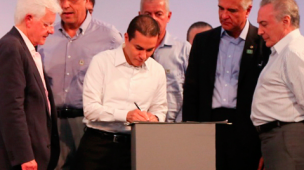Tempo de leitura: 1 minuto
The Zimbabwean government has designated various tracts of land as Special Economic Zones (SEZ) in a noble production oriented policy which requires follow through. The Special Economic Zones Act (Chapter 14:34) of October 2016 gave birth to the Zimbabwe Special Economic Zones Authority (ZimSEZA) which is a statutory body set up specifically to attract investment, designate, develop and administer economic zones in various parts of Zimbabwe. The country has been struggling to attract foreign investment with FDI inflows averaging $340 million from 2009 to 2018 against a SADC regional average of over $1.2 billion.
Special economic zones projects have been successfully implemented in other countries including Ethiopia (Hawassa Industrial Park), Tanzania (Benjamin Mkapa SEZ), Kenya (Mombasa Industrial Park), India and China. India and China (The fastest growing economies in the world) have various types of commerce and trade investment zones namely export processing zones, pharmaceutical technology zones, free trade zones, technology parks and tourism zones.To date, the government has set aside Sunway City in Harare as a technological hub, Victoria Falls as both a financial and tourism hub and Bulawayo as an industrial economic zone.
The revival of Bulawayo is premised on the rehabilitation of NRZ, the revival of beef processing, leather manufacturing, cotton and textile, steel and foundry industries that can be key in employment creation and foreign currency generation. In addition to the above, a corridor stretching from Victoria Falls-Binga-Gwayi-Kariba has been set aside for tourism, Mutare has been set aside for Diamond cutting and polishing while Lupane has been earmarked for petro-chemical and energy industries. Other areas are still being identified or declared countrywide.
In terms of tax incentives for special economic zones. The Finance Act of 2017 points that there will be zero-rating of corporate income tax for the first 5 years of setting up with a corporate tax rate of 15% applying thereafter and duty-free importation of raw materials and capital equipment. The other fiscal incentives include exemption from capital gain tax, exemption from non-residents tax on fees for services that are not locally available and exemption from non-residents tax on royalties.






Os comentários foram encerrados, mas trackbacks e pingbacks estão abertos.